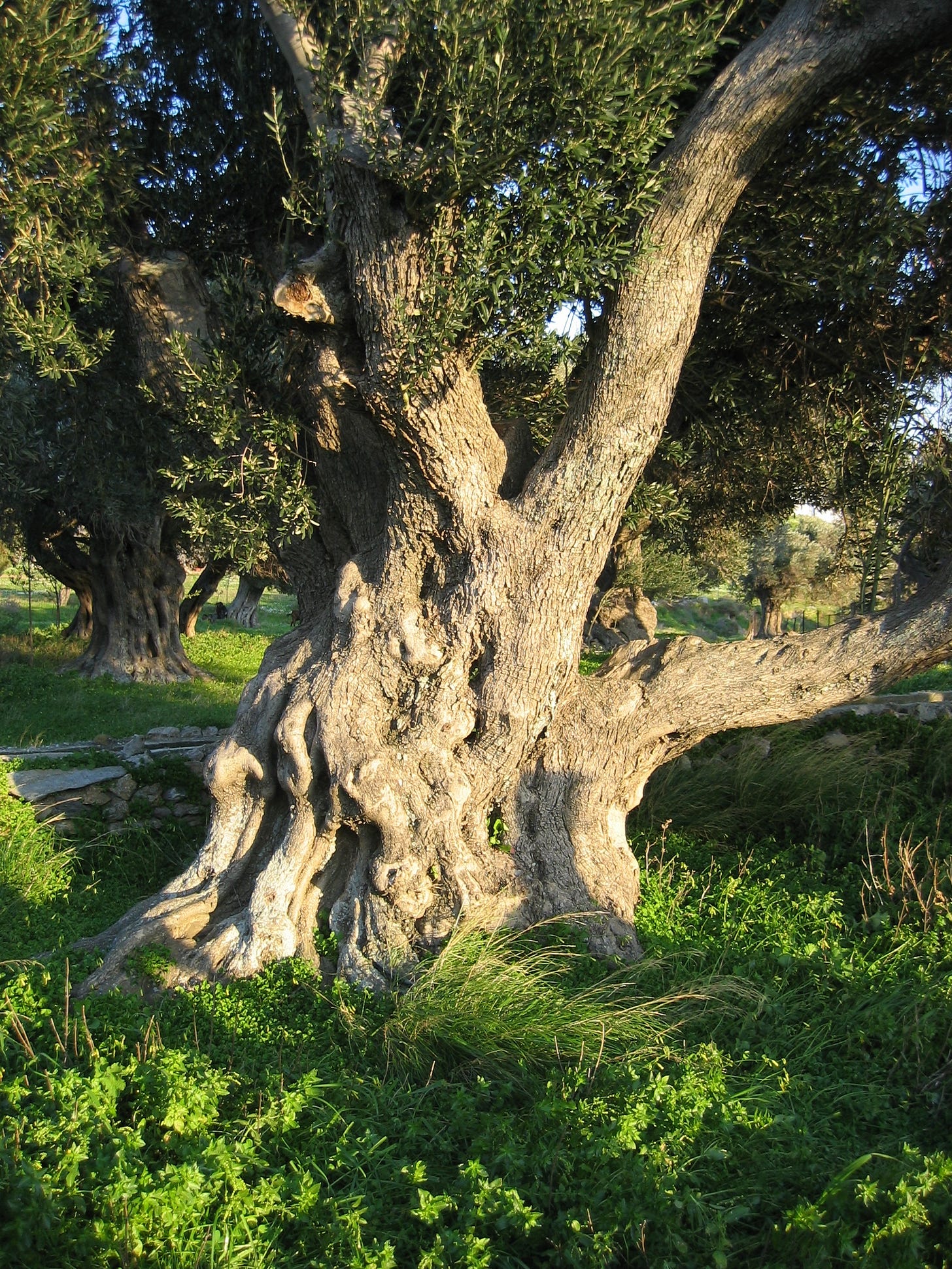Olive trees arrived on this planet 20-40 million years ago.
Those giant numbers don’t mean anything to my average human brain, but 20-40 million years ago, our planet was in the Oligocene era. Dogs, pine trees, and some pretty wild-looking sabertooth cats roamed the earth.
Notably, there were no humans. We have only been around for 2 million years.
I.
Olive trees are evergreens native to the Mediterranean Basin. It is too cold for olive trees where I live, so it didn’t occur to me that they never entirely lose their silvery green leaves. As you can see above, they also have impressively twisted gnarled trunks and are very drought-tolerant.
They can grow to be ancient and show their age impressively.
Olive trees existed for tens of millions of years before humans started harvesting the fruit to make oil, first for fuel and, more recently, for food.
And it is only over the past hundred years that the olive tree, much like the watermelon and the strawberry, became a symbol of Palestinian resistance.
III.
Mahmoud Darwish is probably the Palestinian poet most associated with olive trees. He wrote the famous lines: “If the olive trees knew the hands that planted them / Their oil would become tears.” In the 1960s, he was arrested for “reciting poetry and traveling between villages without a permit” and was forced into exile.
Palestinians have been stewards of the olive trees for millennia. The brutal water and travel restrictions have made growing crops almost impossible. It is obviously much worse now.
It has been 60 years since Darwish’s arrest and protest, but the problems have only worsened.
Contemporary poet Noor Hindi lives in Dearborn, Michigan, and wrote the poem “Pledging Allegiance” in her book Dear God, Dear Bones, Dear Yellow.
Language isn’t enough
Here—an image of homeland. The word colonization, a photo of a fruit so
bloodied. I hold a beam of light to a wall, makes shadows of Palestine I try to
catch. Olive trees, Israeli soldier, a metaphor of Palestine as a woman.
The metaphor, the photograph, the poem, and the tree all seem to wither under unrelenting oppression and violence.
IV.
Between 1967 and 2021, Israeli authorities illegally destroyed more than 800,000 Palestinian olive trees. Many of them were vandalized and burned out of spite. “Oftentimes these trees are burned in front of the families, violently ending their livelihood.”
And recently, some Palestinians have been forced to cut down their beloved family olive trees to feed their families.
A man named Khaled Barak told Al Jazeera, “These trees lived through my moments of joy and sadness. They know my secrets. When I was sad and worried, I would talk to the trees, take care of them … but the war killed those trees.”
V.
One small thing you can do is buy olive oil from places like Baba’s Olives, a small Palestinian-American-owned olive oil producer. Read poems by Palestinians and buy their books.
My hope for you is that you are bold in the face of the Empires that wish you harm. Be brave, do not lose hope. Together, may we live to see a liberated Palestine and the flourishing of many beautiful olive trees.



